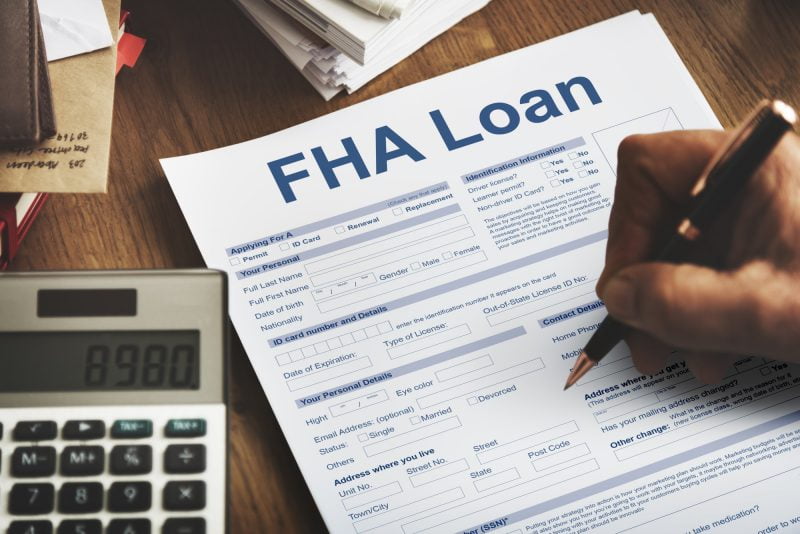In 2020, about 2.38 million people became first-time homebuyers. Many of them relied on a first-time homebuyer (FHA) loan to finance the purchase.
FHA loans have been around for years, helping homebuyers live the dream of homeownership. They offer a lot of advantages.
For lenders, the federal government insures the loan. Homebuyers no longer have to figure out how to come up with a 20% down payment.
Not everyone sees the benefits of the loans because they make simple FHA loan application mistakes. You could miss out on a low 5% down payment.
Read on to learn the tricks for applying for FHA loans are so you can get approved and into your dream home.
1. Check Credit at the Last Minute
Did you remember to check your credit score? Don’t wait until the day before applying for the loan to check your credit.
There could be a few surprises that prevent you from getting approved for the loan.
For instance, there might be errors in your credit report. The credit utilization rate might be higher than banks would like.
Pull your credit report and your credit score. Look for ways to improve your score and make a strong case for approval.
If you’re not sure, check with a couple of mortgage loan officers and get their advice as to how you can improve your credit score.
2. Don’t Use Down Payment Programs
Did you know that there are programs available to help first-time homebuyers come up with a down payment? Down payment assistance programs range from loan interest loans to grants.
There are savings programs where you pay into a savings account every month for 12-24 months. At the end of the time period, those funds get matched as a grant.
You doubled the amount saved for a down payment because you found a helpful program.
Where do you find these down payment assistance programs? Check with your local Realtors association, city, and state to learn more about these programs in your area.
3. Not Shopping Around for a Loan
You’d think that FHA loans are standardized, and they’ll be the same from one lender to the next. Remember, what makes an FHA loan is that the government insures the loan.
The Department of Housing and Urban Development does have some loan guidelines and standards. The types of loans and interest rates vary between loan companies.
It’s in your best interest to shop around for an FHA loan. Get recommendations for mortgage lenders in your area.
Research each lender and look at the reviews and references for each company.
Gather your documentation and get pre-qualified first. When you’re ready to go house shopping, pick your lender of choice and get pre-approved for a loan.
4. Don’t Double-Check the FHA Loan Application
The FHA loan application is long. It’s easy to make a critical error that causes a delay or denial of the loan.
The best thing to do is get your documentation together before you apply. You should also know the FHA loan qualifications ahead of time.
You’ll need your last two years of tax returns, W-2 forms, show steady employment history, and submit your latest pay stubs. Have a copy of a government-issued ID and Social Security card on hand as well.
Set aside some time to fill out the application. Review it a couple of times before you submit it.
5. Not Knowing All Loan Costs
There are more surprises in store before you get the keys to the house. They’re in the form of closing costs.
Expect to pay between 2% and 6% of the price of the home at closing. Closing costs are the lender’s fees, mortgage insurance, and other third-party fees.
Ask your lender what the closing costs are and negotiate them if you can. If you can’t pay closing costs out of pocket, you can roll them into the loan.
6. Make Life and Credit Changes Before Close
You go pre-approved for a loan. You made an offer on a loan, and it got accepted. You’re in the clear, right?
You can go ahead and get a new credit card to pay for appliances. You can finally change jobs now.
Actually, if you make any changes before the transaction closes, you’ll probably kill the deal.
Lenders will take another look at your credit history and verify your employment before the loan closes. Any sudden changes will make the lender think twice about approving the loan.
7. Getting the Wrong Type of FHA Loan
When you apply for an FHA loan, you have the option to get a fixed-rate loan or an adjustable-rate loan. Choosing the wrong option can make your payments more over the life of the loan.
An adjustable-rate loan means that the interest on the loan gets adjusted throughout the life of the loan. This usually happens every year.
Some lenders change the interest rate quarterly, while others change the rate every five years.
A fixed-rate loan keeps your interest rate the same for the entire life of the loan.
Keep in mind that we’re in the middle of a pandemic and interest rates have never been lower. If you get an adjustable-rate loan now, the interest rate is certainly going to go up.
Your payments will increase along with the interest rate. It’s best to get a fixed-rate loan in this market to lock that rate in for the next 30 years.
Avoid These FHA Loan Application Mistakes
FHA loans are helpful for first-time homebuyers because they lower the barrier of homeownership. There are a lot of things that can go wrong in the application process.
Don’t make the FHA loan application mistakes listed in this article. Avoid them, and you’ll get approved in no time.
For more real estate tips, be sure to check out the other articles on the blog today!









